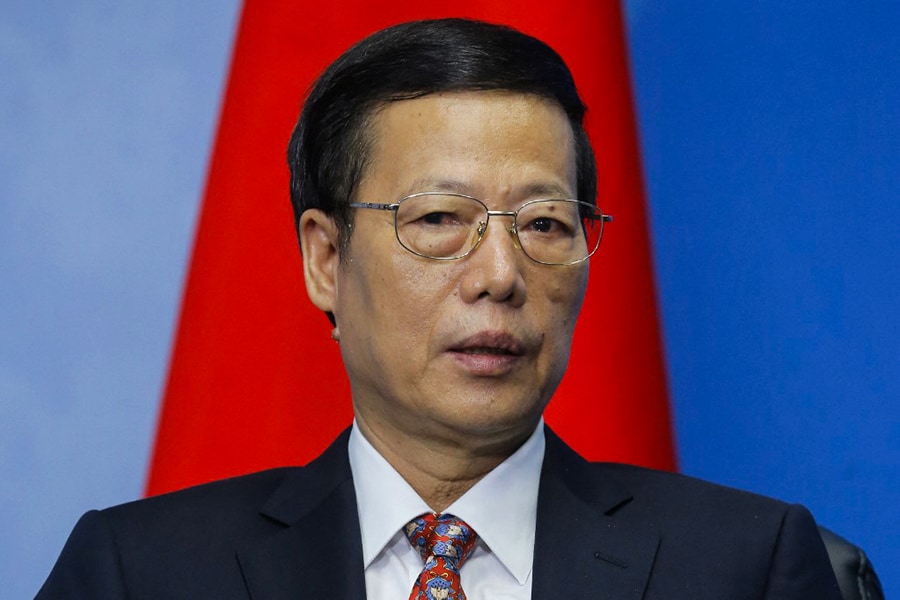
How Peng Shuai's accusation pierced the privileged citadel of Chinese politics
Zhang Gaoli belongs to a generation of officials who rose after the upheavals of the Cultural Revolution, taking on the self-effacing ethos of collective leadership under Hu Jintao, who preceded the country's current leader, Xi Jinping
 This file photo taken on June 20, 2013 shows Chinese Executive Vice Premier Zhang Gaoli attending a meeting with Russia's president at the economic forum in St. Petersburg. Chinese tennis star Peng Shuai said she was safe and well during a video call with the International Olympic Committee chief on November 21, 2021, the organisation said, amid international concern about her well-being after being seen attending a Beijing tennis tournament, marking her first public appearance since she made her accusations against former vice premier Zhang Gaoli.
This file photo taken on June 20, 2013 shows Chinese Executive Vice Premier Zhang Gaoli attending a meeting with Russia's president at the economic forum in St. Petersburg. Chinese tennis star Peng Shuai said she was safe and well during a video call with the International Olympic Committee chief on November 21, 2021, the organisation said, amid international concern about her well-being after being seen attending a Beijing tennis tournament, marking her first public appearance since she made her accusations against former vice premier Zhang Gaoli.
Image: Dmitry Lovetsky/ POOL/ AFP
Before Zhang Gaoli was engulfed in accusations that he had sexually assaulted a tennis champion, he seemed to embody the qualities that the Chinese Communist Party prizes in officials: austere, disciplined, and impeccably loyal to the leader of the day.
He had climbed steadily from running an oil refinery to a succession of leadership posts along China’s fast-growing coast, avoiding the scandals and controversy that felled other, flashily ambitious politicians. He became known, if for anything, for his monotone impersonality. On entering China’s top leadership, he invited people to search for anything amiss in his behavior.
“Stern, low-key, taciturn,” summed up one of the few profiles of him in the Chinese media. His interests, Xinhua News Agency said, included books, chess and tennis.
Now the allegation from Peng Shuai, the professional tennis player, has cast Zhang’s private life under a blaze of international attention, making him a symbol of a political system that prizes secrecy and control over open accountability. The allegation raises questions about how far Chinese officials carry their declared ideals of clean-living integrity into their heavily guarded homes.
©2019 New York Times News Service







